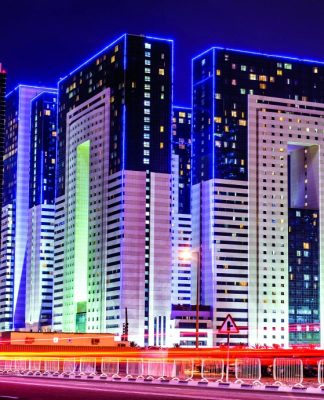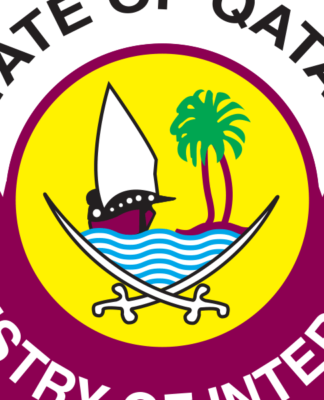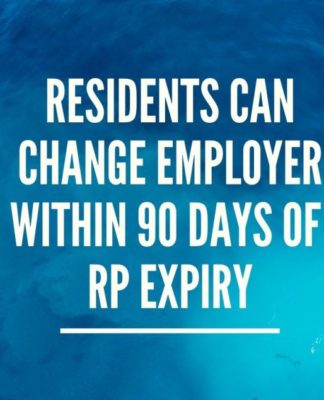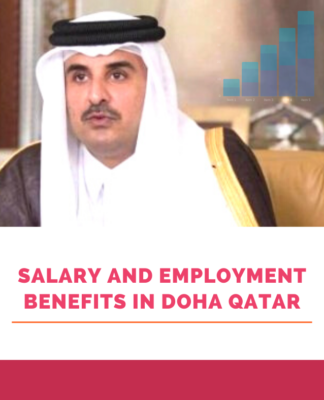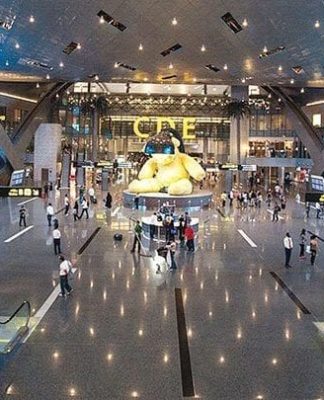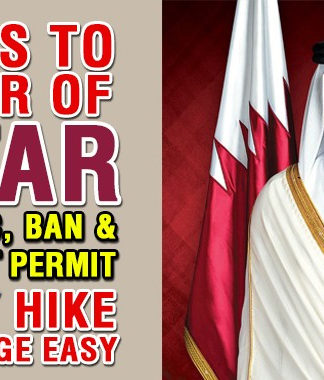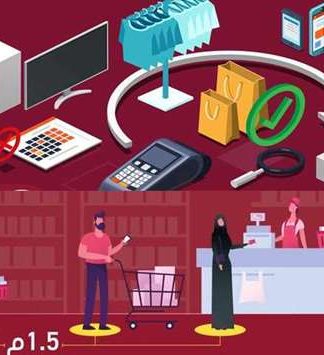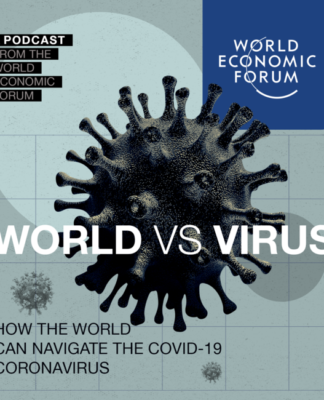Back to homepage / Europe
HOUR BY HOUR
🔴 Live: EU warns against unstable and dangerous Russia in wake of mutiny
The EU will on Thursday discuss the repercussions of the Wagner Group’s aborted rebellion in Russia as they look at further its aid to Ukraine in the wake of Moscow’s invasion. NATO chief head Jens Stoltenberg is also set to meet with the bloc. Elsewhere, Ukraine held drills in Zaporizhzhia in preparation for radiation leaks from the nuclear plant. Follow our live blog for all the latest developments on the war in Ukraine. All times are Paris time (GMT+2).
Issued on: 29/06/2023 – 08:03
Modified: 29/06/2023 – 23:32
18 min
From left: European Council President Charles Michel, Germany’s Chancellor Olaf Scholz, NATO Secretary General Jens Stoltenberg, High Representative of the European Union for Foreign Affairs and Security Policy Josep Borrell and President of the European Commission Ursula von der Leyen, attend the European Council Summit, at the EU headquarters in Brussels, on June 29, 2023.
From left: European Council President Charles Michel, Germany’s Chancellor Olaf Scholz, NATO Secretary General Jens Stoltenberg, High Representative of the European Union for Foreign Affairs and Security Policy Josep Borrell and President of the European Commission Ursula von der Leyen, attend the European Council Summit, at the EU headquarters in Brussels, on June 29, 2023. © Ludovic Marin, AFP
Text by:
FRANCE 24
Follow
12:50am: EU leaders back security commitments for Ukraine
European Union leaders declared on Thursday they would make long-term commitments to bolster Ukraine’s security as President Volodymyr Zelensky urged them to start work on a new round of sanctions against Russia.
At a summit in Brussels, the leaders restated their condemnation of Russia’s war against Ukraine and said the EU and its member countries “stand ready” to contribute to commitments that would help Ukraine defend itself in the long term.
In a text summarising the conclusions of the summit, the leaders said they would swiftly consider the form these commitments would take.
Josep Borrell, the bloc’s foreign policy chief, suggested they could build on existing EU support, such as the European Peace Facility fund that has financed billions of euros in arms for Ukraine and a training mission for Ukrainian troops.
“The military support to Ukraine has to (be for the) long haul,” Borrell told reporters, suggesting the EU could establish a Ukrainian Defence Fund, modelled on the Peace Facility.
“The training has to continue, the modernisation of the army has to continue. Ukraine needs our commitment to continue ensuring their security during the war and after the war,” he added.
10:25pm: Greta Thunberg speaks out against ecological havoc caused by Ukraine war
Environmental activist Greta Thunberg on Thursday denounced the ecological havoc caused by Russia’s invasion of Ukraine and the lack of international reaction to the disaster.
“Ecocide and environmental destruction is a form of warfare… as Ukrainians by this point know all too well — and so does Russia,” said Thunberg, during a visit to Kyiv as part of an international delegation investigating the environmental consequences of the conflict.
“And that’s why they are deliberately targeting the environment and people’s livelihoods and homes and therefore also destroying lives…”.
Thunberg was speaking at a news conference along with Ukrainian presidential aide Andriy Yermak.
She and the rest of the delegation also met President Volodymyr Zelensky.
9:25pm: Pentagon says not aware of decisions to provide long-range missiles to Kyiv
The Pentagon said on Thursday it was not aware of any imminent decision about the provision of US Army Tactical Missile System (ATACMS) long-range missiles to Ukraine, following a news report from the Wall Street Journal suggesting Washington was close to providing them to Kyiv.
Kyiv has long sought the ATACMS, arguing the missiles would help them strike Russian forces far behind the front lines.
“I don’t have anything to announce regarding ATACMs and certainly I’m not aware of any imminent decisions as it relates to ATACMs,” Pentagon spokesperson Brigadier General Patrick Ryder told a press briefing
8:52pm: Ukraine holds drills in Zaporizhzhia in preparation for radiation leaks from nuclear plant
Dressed in white and yellow protective suits and armed with devices to detect radiation levels, Ukrainian emergency workers took part in a drill Thursday to prepare for a potential risk of radiation leakage from the Russian-occupied Zaporizhzhia nuclear power plant.
Dozens of civilians joined the drill on the outskirts of the city of Zaporizhzhia, located around 100 kilometers (62 miles) from the nuclear power plant, Europe’s largest.
In a tent set up to provide first aid, emergency workers practiced hosing people down with soap and going through the motions of administering treatment to individuals who play-acted victims from possible radiation-affected areas.
Russia occupied the plant in the early stages of the war. Over the past year, it has become a focal point of concern as Russia and Ukraine accuse each other of shelling the plant.
7:29pm: Ukraine invests in drone manufacturing for counter-offensive
Ukraine is currently investing in local drone manufacturing to boost its artillery capacity. Witnessing an increase in the number of Russian kamikaze drones, Ukraine is in a race against the clock to manufacture more drones to bolster its counter-offensive chances.
FRANCE 24’s Gwendoline Debono and Amar Al Hameedawi report:
02:12
5:27pm: UK suggests speeding up Ukraine’s membership of NATO
NATO should look at skipping the requirement for Ukraine’s Membership Action Plan as part of its pathway to joining the alliance, British defence minister Ben Wallace said on Thursday.
“I think we should absolutely look at skipping the Membership Action Plan,” he said at a joint press conference alongside his Canadian counterpart in London.
5:14pm: EU warns against unstable and dangerous Russia at summit
The EU warned Thursday that Russia has become unstable and more dangerous following the brief mutiny by its Wagner mercenaries that exposed President Vladimir Putin as weaker than previously thought.
European Commission President Ursula von der Leyen said the “aftershocks” of the Wagner rebellion were still playing out.
“A weaker Putin is a greater danger,” EU foreign policy chief Josep Borrell said as he arrived for a Brussels summit.
NATO chief Jens Stoltenberg, also attending the summit, said that while it was “too early to draw any final conclusions”, Wagner’s June 24 mutiny and march towards Moscow revealed “cracks and divisions” in Russia.
3:54pm: EU leaders assess Putin’s position in talks with NATO and Ukraine chiefs at summit
Gathering in Brussels for a summit focused on the war in Ukraine, European Union leaders are also discussing the recent Wagner rebellion in Russia which showed cracks within President Vladimir Putin’s regime.
FRANCE 24’s European Affairs Commentator Armen Georgian reports.
04:18
3:05pm: Two killed in Ukraine after Russian shelling, says regional governor
Two people were killed and two wounded in Russian shelling of a refuge for civilians known as an invincibility point in the city of Kherson in southern Ukraine on Thursday, the regional governor said.
“Two local people were killed and two more are in hospital in moderate condition,” governor Oleksandr Prokudin wrote on the Telegram messaging app.
2:07pm: Lithuania ‘extremely concerned’ by situation in Belarus
Lithuania is “extremely concerned” about developments in its neighbour Belarus and the presence of Wagner mercenary group chief Yevgeny Prigozhin, the Baltic country’s president said Thursday.
“We are extremely concerned about the developments in Belarus. Prigozhin is already there… I cannot say 100 percent but it is very likely that he is already there,” Lithuanian President Gitanas Nauseda said before an EU leaders’ summit in Brussels.
The leader of the Baltic country, which neighbours both Belarus and Russia and will host next month’s NATO summit, repeated his call for a strengthened eastern flank.
“The fighter groups or these serial killers (as) I call them… they could emerge in Belarus at any moment and nobody knows when they could turn against us,” he added.
1:31pm: Neutral EU states object to safety assurances for Ukraine, Austria says
EU countries with a neutral stance object to giving Ukraine outright security assurances, Austrian chancellor Karl Nehammer said on Thursday.
“For us as neutral states it is clear we can’t give security guarantees like that. Austria, Ireland, Malta and Cyprus have made it clear they have objections,” Nehammer said before a meeting with other EU government leaders in Brussels.
“The role of the neutral states needs to be explicitly taken into account. We will certainly discuss this and we will find formulations that will be acceptable for us as well.”
1:25pm: EU’s Borrell suggests setting up long-term Ukraine Defence fund for arms supplies
The European Union needs to consider turning the European Peace Facility that has been used to fund weapons for Kyiv into a more permanent tool to arm the country in the long term, the EU’s top diplomat suggested on Thursday.
“We talk about security commitments. From my side, it means military support for Ukraine has to have a long haul… during the war and after the war,” EU foreign policy chief Josep Borrell said as he arrived for an EU summit in Brussels.
“So the European Peace Facility for Ukraine maybe has to become a Ukraine Defence Fund – the training has to continue, the modernisation of the army has to continue.”
1:21pm: EU’s Borrell says ‘weaker Putin is a greater danger’
The EU’s top diplomat warned Thursday that a “weaker” Russian President Vladimir Putin would pose a “greater danger” after Wagner’s aborted mutiny sparked the largest political crisis in decades in the nuclear-armed country.
“A weaker Putin is a greater danger,” Josep Borrell told reporters ahead of a summit of EU leaders in Brussels, adding: “Now we have to look at Russia as a risk because of internal instability.”
1:18pm: Vatican envoy in Moscow meets Russian official wanted by ICC
A Russian official wanted by the International Criminal Court (ICC) over allegations of illegally transferring Ukrainian children to Russia said Thursday she had met a visiting Vatican envoy.
Cardinal Matteo Zuppi began his visit to Russia earlier this week, in a first such trip since President Vladimir Putin sent troops to Ukraine in February 2022.
“Met with Cardinal Matteo Zuppi,” Moscow’s ombudswoman for children’s rights Maria Lvova-Belova said in a statement.
“We discussed humanitarian issues related to military operations and the protection of children’s rights. … I am sure that Christian love and mercy will help in dialogue and mutual understanding,” she added.
Read more
Mother Russia: Maria Lvova-Belova, the Putin ally deporting Ukrainian children
The ICC, which is based in The Hague, released arrest warrants for Lvova-Belova as well as Putin in March.
The court said the orders were linked to the war crime accusation of unlawfully deporting Ukrainian children.
1:11pm: Russia claims two Ukraine generals killed in Kramatorsk strike
Russia on Thursday claimed its forces had killed two Ukrainian generals and “up to 50 officers” in a strike on the eastern Ukrainian city of Kramatorsk this week.
“As a result of a strike on June 27 on Kramatorsk, two generals and up to 50 officers of the Ukrainian army were eliminated,” the Russian defence ministry said in a statement.
“Up to 20 foreign mercenaries and advisers” were also killed, the statement added.
The defence ministry in Moscow claimed Russian forces hit a “point of temporary deployment of the 56th separate motorized infantry brigade of Ukraine’s armed forces” with a high-precision strike.
A Russian missile struck a pizza restaurant in Kramatorsk this week, killing 12 people including children and wounding dozens.
12:59pm: Dutch PM says EU still to decide what form security assurances to Ukraine will take
The European Union still needs to decide the shape and form of the security assurances it wishes to give Ukraine, Dutch Prime Minister Mark Rutte said on Thursday, adding they would be additional to current military support.
“This European track would be additional. We will have to discuss how far it goes, and if it would be lethal or non-lethal support. And we have to take into account that several EU countries are not a member of NATO,” Rutte said as he arrived for a meeting with EU leaders in Brussels.
12:57pm: Prigozhin told he will lose financing if his fighters don’t sign contracts with Russian defence ministry, Russian agency reports
Yevgeny Prigozhin, head of Russia’s Wagner mercenary group, has been told that he will be deprived of financing if his fighters do not sign contracts with the defence ministry, the RIA news agency cited a senior lawmaker as saying on Thursday.
Colonel-General Andrei Kartapolov, an influential lawmaker who chairs the lower house of parliament’s defence committee, said Prigozhin had refused to sign the contracts and was subsequently told that his mercenaries would no longer fight in Ukraine, TASS reported.
12:46pm: Ukraine conducts disaster response drills near Zaporizhzhia nuclear plant
Ukraine began nuclear disaster response drills on Thursday in the vicinity of the Russian-occupied Zaporizhzhia nuclear power station in the south of the country, regional officials said.
Kyiv accused Russia this month of planning a “terrorist” attack at the plant involving the release of radiation. Moscow denied the accusation.
Yuriy Malashko, the governor of the Zaporizhzhia region which includes the plant, said the drills had begun in the city of Zaporizhzhia and the district around it.
Similar exercises started in the neighbouring Kherson region, Kherson region governor Oleksander Prokudin said.
“The purpose of the event is to coordinate the actions of all services in case of a real threat of an emergency situation at the Zaporizhzhia Nuclear Power Plant,” he said on the Telegram messaging app, urging residents to remain calm.
Prokudin said various officials and civil defence forces were working jointly on scenarios that might follow a nuclear disaster, and on how to inform and evacuate the population. Authorities were testing alert systems.
12:43pm: Satellite images appear to show build-up at Wagner base in Belarus
Satellite images of a military base southeast of the Belarus capital Minsk appear to show new facilities set up in recent days, suggesting the swift construction of a base for Wagner, the Russian mercenary company behind an abortive rebellion.
Russian media have reported that Wagner, whose leader Yevgeny Prigozhin arrived in Belarus on Tuesday, could set up a new base at a vacant military facility near the town of Asipovichi, about 90 km (50 miles) from Minsk.
Images captured by the European Space Agency’s Sentinel 2 satellites on June 27 show rows of long structures in the nearby village of Tsel, in a field which had appeared empty on June 14.
The nature of the constructions could not be independently verified. The images are publicly available through searches on the ESA website.
12:40pm: Estonian PM calls for ‘clear’ pathway for Ukraine NATO membership
NATO member states need to agree on a clear pathway for Ukraine’s membership at the NATO summit, Estonia’s Prime Minister Kaja Kallas said on Thursday.
“The only security guarantee that really works, and the cheapest security guarantee that really works is NATO membership”, she told reporters ahead of a summit with other EU government leaders in Brussels, adding this can’t happen while the war is going on.
12:23pm: Kremlin says Zaporizhzhia atomic plant under constant threat of ‘provocations’
The Kremlin said on Thursday there was a constant threat of “provocations” from the Ukrainian side regarding the nuclear power plant at Zaporizhzhia.
Kremlin spokesman Dmitry Peskov, speaking at a regular news briefing, said that inspectors had recently been at the site to check on the safety of the plant, which is controlled by Russian forces but is near the frontline of fighting in southern Ukraine.
The UN atomic energy agency has frequently appealed to both sides to avoid shelling in the vicinity of the Zaporizhzhia nuclear plant, Europe’s largest.
12:09pm: Ukraine tells NATO ‘time for clarity’ on membership
Kyiv said Thursday the time had come for NATO to clarify its stance on war-torn Ukraine’s membership, ahead of a key alliance summit next month.
“Ukraine continues to work actively with all NATO allies to convince them that the time for clarity on Ukraine’s membership in the Alliance has come,” Foreign Minister Dmytro Kuleba tweeted after speaking by phone with NATO Secretary General Jens Stoltenberg.
12:05pm: Kremlin refers questions about General Surovikin’s fate to the defence ministry
The Kremlin on Thursday declined to answer questions about Russian General Sergei Surovikin, whose status and location have not been made public since an abortive armed mercenary mutiny on Saturday.
Nicknamed “General Armageddon” by the Russian press for his aggressive tactics in the Syrian conflict, Surovikin, who is deputy commander of Russian forces in Ukraine, has been absent from view since Saturday.
There have since been unconfirmed reports that he is being questioned by the security services.
Kremlin spokesman Dmitry Peskov referred questions about Surovikin to the defence ministry, which has so far not made any statement about him.
Peskov said he did not have information about Prigozhin’s whereabouts at the present time.
10:46am: Ukraine claims slow gains in ‘fierce’ Bakhmut battles
Kyiv said Thursday that its forces were making slow gains around Bakhmut and were engaging in “fierce” fighting with Russian forces around the embattled east Ukraine town.
“We have advances near Bakhmut and are continuing. We are moving,” the commander of Ukraine’s ground forces, Oleksandr Syrskyi, said in a post on social media.
Deputy Defence Minister Ganna Malyar separately said Thursday that Ukrainian forces had seized the “operational advantage” around Bakhmut and were on the offensive.
“Our troops are gnawing away at every meter of the enemy’s land in this fierce battle,” she said in a statement, adding: “They are making progress”.
Russian forces announced their capture of Bakhmut in May after months of gruelling warfare for the now-destroyed town that once was home to some 80,000 people. Ukrainian forces have since been posting painstaking gains around the flanks of the city after announcing a highly-anticipated counteroffensive earlier this month.
9:47am: Poland says EU should help pay for border security amid Wagner fears
Poland expects the European Union to help it fund measures to strengthen its eastern border, a deputy minister said on Thursday, after Warsaw announced a tightening of security due to concerns over the presence of the Wagner group in Belarus.
Russian President Vladimir Putin’s decision to offer troops from the private military company the choice of relocating to Belarus has led to fears among eastern NATO members that their presence will cause greater instability in the region.
On Wednesday the leader of Poland’s ruling nationalists Law and Justice (PiS), Deputy Prime Minister Jaroslaw Kaczynski, said Poland believed that there could be around 8,000 Wagner troops already in Belarus.
He said Poland would take both temporary and permanent steps to strengthen the border, including boosting the presence of security forces and increasing fortifications.
Asked on Thursday whether Brussels should help Warsaw pay for such measures, Deputy Foreign Minister Pawel Jablonski said “Poland expects it”.
“European solidarity means supporting countries threatened with destabilization,” he told public radio. “These safeguards need to be increased.”
8:59am: Papal envoy to meet Patriarch Kirill in Moscow
Papal envoy Cardinal Matteo Zuppi and Patriarch Kirill, the head of the Russian Orthodox Church, will meet in Moscow on Thursday, Russia’s RIA news agency reported.
Read more
Patriarch Kirill: The politically influential head of the Russian Orthodox Church
Zuppi on Wednesday discussed humanitarian issues with Russian President Vladimir Putin’s foreign policy adviser.
8:48am: Russian general ‘sympathetic’ to Wagner rebellion arrested, Moscow Times reports
Russian General Sergei Surovikin has been arrested, The Moscow Times reported Wednesday evening local time, citing two anonymous sources close to Russia’s Defense Ministry.
Surovikin, the deputy commander of Russia’s military operations in Ukraine, was sympathetic to mercenary chief Yevgeny Prigozhin’s weekend rebellion, US officials said on Wednesday, though it was unclear if he actively supported it.
The gereral has not been seen in public since Saturday and his whereabouts are unknown. The Defense Ministry has yet to comment on his alleged arrest.
Alexei Venediktov, editor-in-chief of the former Ekho Moskvy radio station, wrote on Telegram that Surovikin has not been in contact with his family for three days.
Surovikin is one of several generals to have have dropped out of public view following the Wagner Group’s failed rebellion aimed at toppling Russia’s top brass.
Read more
Russia’s top generals disappear from public view after failed Wagner rebellion
8:10am: Death toll rises to 12 after Russian missile strike on restaurant in Ukraine
The toll from a Russian missile strike on a restaurant in eastern Ukraine rose to 12 dead and at least 60 wounded on Thursday morning, authorities said.
In the Ukrainian-controlled town, where Russian strikes also hit homes, shops, a post office and other buildings, “rescue workers removed another body” on Thursday morning, bringing the death toll to 12, according to Kyiv’s Interior Minister Igor Klymenko.
Three children were among the dead but the count of the wounded differed, with Klymenko putting the figure at 65 and emergency services counting 60.
The latter also said 11 people had been rescued from the Ria Pizza restaurant, an eatery popular with soldiers, aid workers and journalists.
6:12am: EU should not ‘lower the bar’ to take in Ukraine, says Denmark
Denmark’s Finance Minister Lars Løkke Rasmussen said that his government supported European Union membership for Ukraine, Moldova, Georgia and the western Balkans but said “geopolitical circumstances” did not justify skating over governance reforms, in an interview with the Financial Times on Thursday.
The EU risks “importing instability” if it relaxes its standards on democracy and corruption to hasten the accession of Ukraine and other candidate countries, Rasmussen told FT.
5:00am: EU leaders to discuss Russia rebellion, pledge support for Ukraine
European Union leaders will on Thursday debate the repercussions of the aborted rebellion in Russia as they pledge further support for Ukraine in its war against Moscow’s invasion.
At a summit in Brussels, the leaders will also talk with NATO boss Jens Stoltenberg and discuss what role the EU could play in Western commitments to bolster Ukraine’s security.
Estonian Prime Minister Kaja Kallas said the leaders were certain to discuss Saturday’s dramatic abandoned rebellion by the Wagner mercenary group, even though it is not on the agenda of the summit or mentioned in drafts of its written conclusions.
Charles Michel, the president of the European Council of EU leaders, said the West should continue to support Ukraine and bolster its own defences.
“Ever more in these circumstances, we will reassert our commitment to support Ukraine for as long as it takes, including through sustainable financial and military assistance,” he wrote in a letter inviting leaders to the summit.
1:01am: Zelensky’s leadership honoured with top UK award
Ukrainian President Volodymyr Zelensky has been awarded a prestigious UK prize for his leadership and contribution to international relations, the Chatham House think tank said on Thursday.
The London-based research body said it had awarded Zelensky the 2023 Chatham House Prize, hailing his transformation from actor-turned novice politician to wartime leader as “nothing short of extraordinary”.
“The former actor has unified his nation in defiance of a formidable foe,” the think tank said in a statement.
12:28am: Russian general Surovikin was sympathetic towards Wagner rebellion, US officials say
General Sergei Surovikin, the deputy commander of Russia’s military operations in Ukraine, was sympathetic to mercenary chief Yevgeny Prigozhin’s weekend rebellion, US officials said on Wednesday, though it was unclear if he actively supported it.
Prigozhin startled the world by leading an armed revolt on Saturday that brought his Wagner Group fighters from the Ukrainian border to within 200 kilometers (125 miles) of Moscow before he abruptly called off the uprising.
Three officials, speaking on the condition of anonymity, said that Surovikin had been in support of Prigozhin but Western intelligence did not know with certainty if he had helped the rebellion in any way.
As the rebellion began, Surovikin publicly urged fighters of the Wagner private militia to give up their opposition to the military leadership and return to their bases.
Daily newsletter
Receive essential international news every morning
Subscribe
“I urge you to stop,” Surovikin had said in a video posted on Telegram messaging app, his right hand resting on a rifle.
Key developments from Wednesday, June 28:
NATO Secretary-General Jens Stoltenberg said Wednesday that he had called a meeting of senior officials from Turkey, Sweden and Finland on July 6 to try to overcome Turkish objections to Sweden joining the military organisation.
Ukrainian authorities on Wednesday arrested a man they accused of helping Russia direct a missile strike that killed at least 11 people, including three teenagers, at a popular pizza restaurant in eastern Ukraine. The Tuesday evening attack on Kramatorsk wounded at least 60 other people, Ukraine’s National Police said.

















